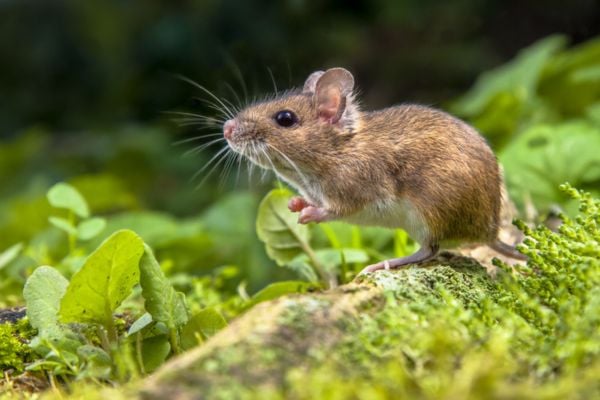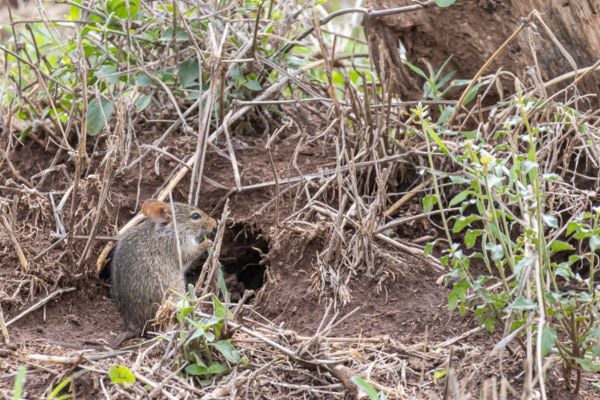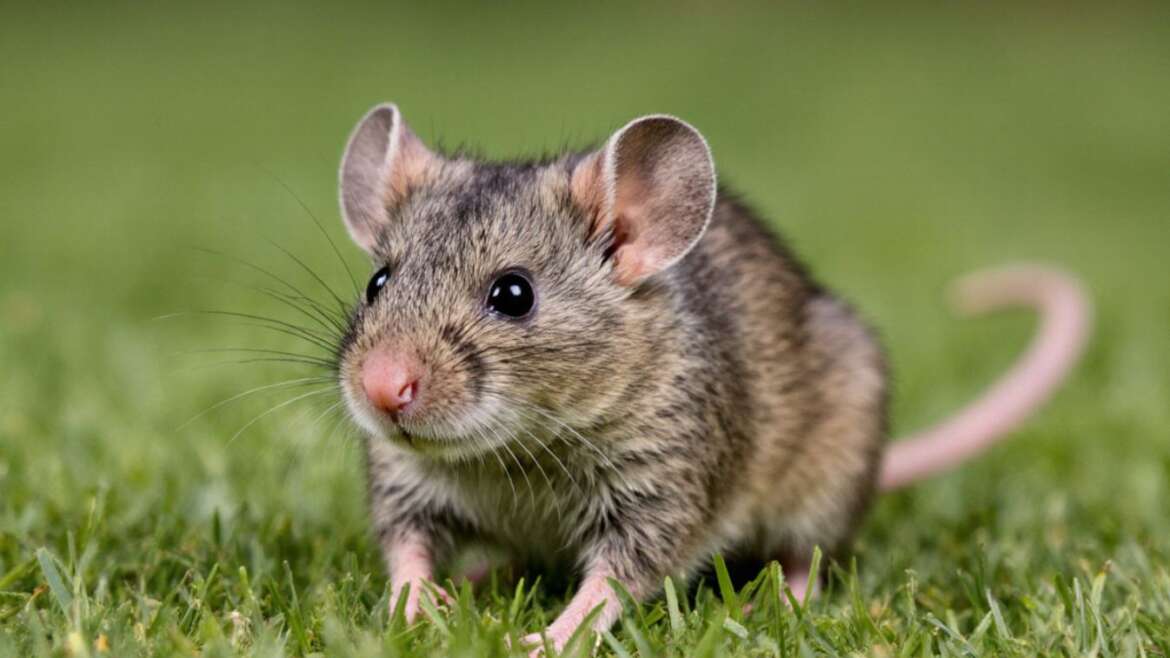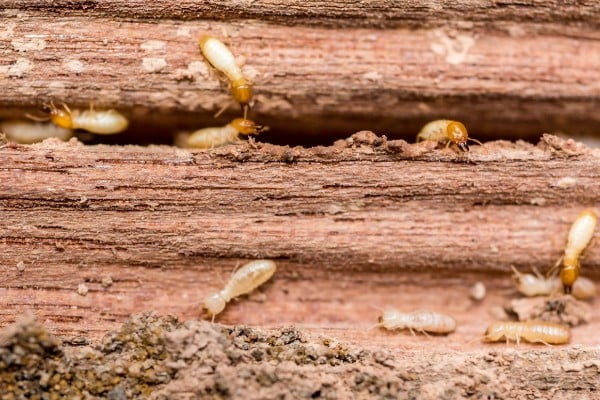- Field mice reproduce rapidly, producing five to ten litters of three to twelve offspring each year, making them difficult to control.
- These rodents are most active in fall and winter when other resources become scarce, prompting them to seek shelter.
- Effective strategies include cleaning your yard, removing exposed food, setting traps, covering burrows, and sealing entry points to reduce mouse presence.
- Natural repellents—like peppermint oil, coffee grounds, vinegar, and ammonia—can help deter field mice from your property.
If you’ve noticed field mice darting about your backyard, you’re not alone. These small, agile rodents are common pests, particularly during fall and winter months when temperatures drop and food sources dwindle. Their rapid reproductive capacity complicates elimination; a small infestation can quickly escalate. Explore effective strategies for discouraging field mice and discover how a professional exterminator may enhance your efforts to keep your garden mouse-free.
Identifying Where Mice Are Hiding in Your Yard
The first step to eliminating mice in your backyard is locating their hiding spots. Common types of mice in residential areas include field mice, house mice, and deer mice. Typical nesting sites include dense shrubbery, under decks, and burrows in the soil. Signs of mouse activity can manifest as droppings, chewed materials, noticeable pathways or tracks in grass, and nesting materials such as shredded leaves or grasses. Mice are particularly attracted to food sources like fallen fruits and vegetables, bird seeds, and pet food, as well as areas that provide ample hiding spots, such as debris piles or tall grass.
Tip: Use a flashlight during the night to spot signs of mouse activity more clearly; they are generally more active after dark, making it easier to identify entry points and nests.

How to Help Get Rid of Mice in Your Yard
Despite their small size, mice possess a remarkable reproductive capability. A single house mouse can produce five to ten litters yearly, with each litter containing three to twelve offspring. They require access to food and water, and when these resources become limited, they can find their way indoors through surprisingly small openings. However, there are effective techniques you can implement to make your yard less appealing to these rodents over time. If you’re wondering how to curb a mouse problem outdoors, consider the following tips.
Clean Up Your Yard
Wood piles, tall grass, and piles of fallen leaves provide ideal hiding and nesting spaces for mice. Regularly mowing your lawn and clearing away debris will make your yard less inviting. If you have wood piles, store them neatly and far from your home. Composting materials should be stored in sealed containers away from your home’s foundation.
Tip: Create a designated “mouse-free zone” around your home with gravel or mulch, making it harder for mice to traverse from the wild areas to your living space.
Remove Exposed Food
Food sources such as bird food, pet food, and improperly secured trash can attract rodents. Ensure trash cans are tightly sealed, preferably with locking lids. Store any uneaten pet food or bird seed in airtight containers inside your home. When planting vegetable gardens, it’s wise to position them away from your home’s foundation, reducing potential mouse access.
Tip: If you have a bird feeder, consider using a tray underneath to catch waste seeds and discourage mice from foraging nearby.
Set Baited Traps
One of the most effective methods for controlling mice is the strategic placement of traps. You may utilize baited snap traps, glue traps, or bait stations in areas of frequent activity. Mice typically prefer running along walls rather than venturing into open spaces; therefore, positioning traps along the perimeter will yield the best results. It’s essential to keep traps out of reach of pets and children.
Tip: For enhanced effectiveness, pair traps with enticing bait like peanut butter or bacon to lure mice in securely.
Cover Burrow Openings
Mice and other rodents may dig burrows in the ground for nesting and shelter. These openings, measuring one to four feet deep, can often extend considerably underground. To deter mouse activity, it’s crucial to fill any burrows found in your yard with a six-inch thick layer of pea gravel. If you observe that burrow openings have been disturbed again, this may indicate an ongoing mouse problem that needs addressing.
Tip: Use a garden spade to identify the depth and width of burrow holes; this will help you know whether they are actively being used and if more intensive measures are needed.
Inspect Your Home
After cleaning your yard and sealing food sources, it’s vital to prevent mice from entering your home. Carefully inspect its exterior for any holes or cracks that could serve as entry points, and seal these openings with wire mesh or caulk. Regular inspections will help you identify potential weaknesses before mice can exploit them.
Tip: Conduct seasonal inspections as part of your routine home maintenance to proactively protect against unwanted pests.

Will Natural Repellents Get Rid of Mice in My Yard?
Natural repellents can serve as a supplemental measure for deterring mice from your yard. Certain scents, including peppermint oil, coffee grounds, vinegar, and ammonia, are known to repel these pests. They contain strong odors that can overwhelm a mouse’s keen sense of smell, potentially prompting them to vacate the area. Notably, ammonia is considered particularly effective, as it mimics the scent of predator urine, creating an inhospitable environment for mice. However, their effectiveness can vary based on the extent of an infestation and other environmental variables.
Tip: Regularly reapply natural repellents, especially after rainfall, to maintain their efficacy and keep the mice at bay.
Get Professional Pest Control and Exclusion
Wondering how to eliminate field mice effectively? The most reliable deterrent for pests of any kind is ongoing pest control. By closely monitoring your garden and surrounding property, you may prevent issues from moving indoors. Mice can squeeze through openings as small as a dime, complicating the task of sealing potential entry points. If you require assistance with rodent exclusion, it may be beneficial to consult a professional pest control service. Exterminators possess expertise in identifying where pests might be hiding and are equipped with the knowledge and tools to eradicate them from your yard and home. Consider scheduling a free inspection with professionals to tailor the best approach for your situation.
Tip: After professional treatment, maintain your home’s pest-free status by setting up regular inspections throughout the year to catch any new issues before they escalate.




